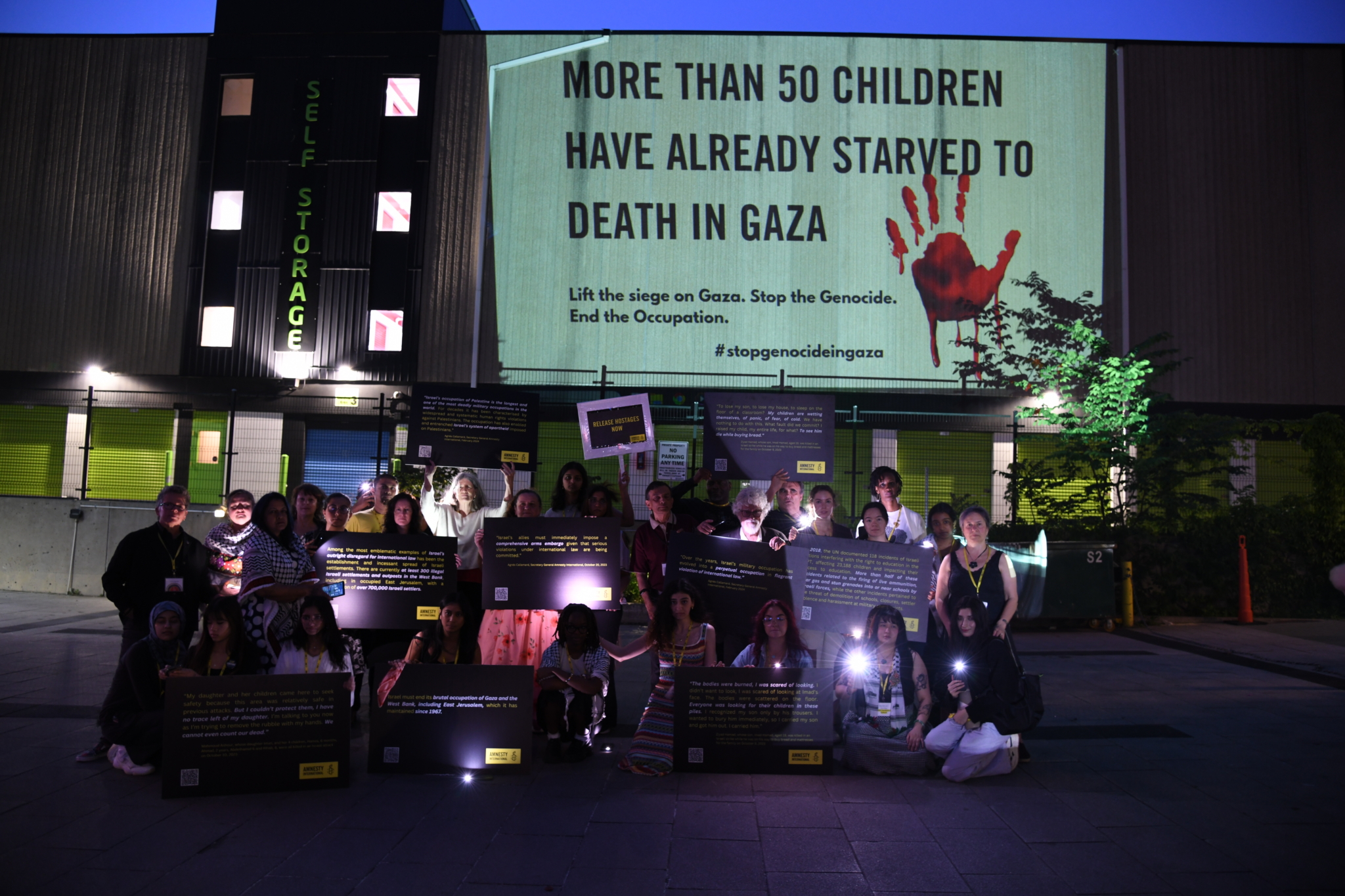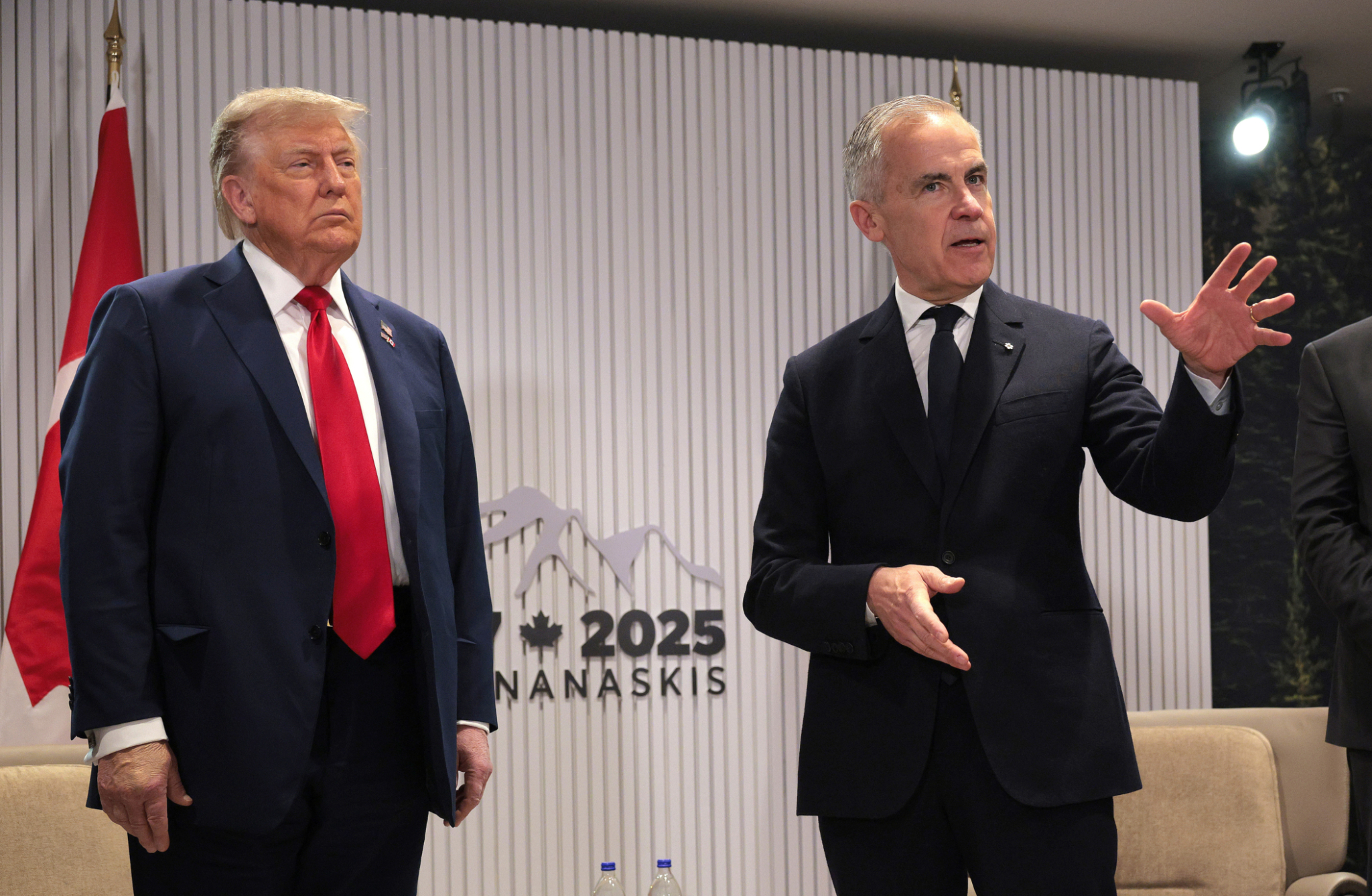The federal government under Prime Minister Mark Carney must change course and reverse the declining state of human rights protection in Canada, Amnesty International Canada warned on Thursday.
Reacting to the first 100 days of Canada’s 45th Parliament, the human rights watchdog called on the federal government to enact policy changes in three priority areas — Indigenous rights, refugee rights, and upholding international law — where the need to correct course is especially urgent
“Since the opening of Parliament on May 26, the Canadian government has championed legislative changes that undermine the rights of Indigenous Nations and threaten to put refugees at risk, while failing to stop the ongoing genocide of Palestinians in Gaza,” said Ketty Nivyabandi, Secretary General of Amnesty International Canada’s English-speaking section. “One hundred days later, the most vulnerable are at greater risk.
“Economic recovery is a clear priority for this government, but it cannot be pursued at the expense of human rights,” she said. “A just economy creates opportunity and protects those at the margins of society. This has not been the case in the past 100 days, but it is not too late for the government to backtrack and lead on human rights. Doing so will require urgent, decisive action.”
Pushing back against escalating threats to Indigenous rights
Canada’s response to U.S. President Donald Trump’s trade war has sidelined Indigenous Nations’ territorial rights. Pro-development bills passed in British Columbia and Ontario this spring gave provincial leaders new powers to push through major infrastructure and mining projects without meaningful community consultation and environmental assessments. Indigenous leaders have rightly denounced the bills, which undermine Indigenous Nations’ right to free, prior and informed consent (FPIC) over building projects that affect their territories. The right to FPIC is enshrined in the UN Declaration on the Rights of Indigenous Peoples.
The federal government exacerbated the crisis by passing the Building Canada Act. The legislation gives cabinet the power to designate projects such as ports, pipelines and dams as being in the “national interest,” allowing them to speed through or bypass environmental assessments and consultation processes. Indigenous leaders across the country have also condemned the bill and the government’s failure to adequately consult Indigenous Nations on its development.
“Ontario’s Bill 5, British Columbia’s Bill 15, and Ottawa’s Bill C-5 represent an orchestrated attack on Indigenous Nations’ rights,” said Nivyabandi. “They are interwoven, interdependent, mutually reinforcing, crafted from the same painful colonial pattern that has, for centuries, dispossessed Indigenous Peoples of their lands and denied their sovereignty.”
Amnesty International Canada calls on the federal government to repeal the Building Canada Act without delay; or substantially amend the legislation to ensure the respect of FPIC and other protections. Any replacement must: embed FPIC as a binding precondition; restore independent environmental assessments and cumulative effects analysis; mandate the publication of clear criteria and reasons for “national interest” designations; and guarantee judicial review and public participation, including Indigenous-led review mechanisms. In addition, Amnesty urges the government to, to the best of its ability, ensure that provinces do not undermine constitutional protections of Indigenous rights, UNDRIP obligations, or international human rights standards and instead actively support Indigenous jurisdiction and decision-making as the foundation of reconciliation.
“Upholding Indigenous rights is not a barrier to shared prosperity — it’s foundational to it,” said Nivyabandi. “If we are serious about confronting climate change and securing a brighter future for everyone, the path forward must be rooted in respect for Indigenous Peoples, environmental responsibility, and human rights. Canada cannot build a just and sustainable economy while sidelining the very Nations that have stewarded these lands for centuries.”
Upholding refugees’ rights
During the 2025 Canadian federal election, the Mark Carney campaign vowed to “[maintain] Canada’s global leadership in prioritizing the world’s most vulnerable, including human rights defenders and refugees.” In practice, the government has proposed sweeping legislation that would prevent some people from having their claims for refugee protection fairly assessed. If passed as is, Bill C-2 would effectively prevent a person who, for example, entered Canada three years ago as a child, from having a refugee claim heard by Canadian immigration two decades from now – even if the person’s life circumstances had changed radically and they found themselves in grave danger in their home country.
Moreover, Canada is already imperiling refugees’ rights by sending people back to the U.S. knowing they will face detention and the risk of deportation to countries where they will be persecuted. Amnesty International has repeatedly condemned the U.S. government’s vicious crackdown on refugees and their rights. Through a series of executive orders and other measures, the Trump administration has made it virtually impossible for people to seek asylum in the United States. Refugee claimants already in the U.S. find themselves hunted by ICE, arbitrarily arrested and thrown into inhumane detention facilities, or sent back to countries of origin where they face persecution, torture or even death.
On Thursday, Nivyabandi repeated Amnesty’s call for the government to stop the passage of Bill C-2 and to withdraw from the Safe Third Country Agreement with the U.S. She also reiterated that Canada must stop using provincial jails and federal prisons for administrative immigration detention.
“Canada cannot continue sending people back to the U.S. to face the cruelty and racism of President Trump’s mass deportation campaign,” Nivyabandi said. “This government must end its complicity in the United States’ attacks on refugees, stop attacking refugee rights here in Canada, and strongly counter false anti-refugee narratives that have crept into the political discourse.”
Upholding international law and the Genocide Convention in Gaza
Since the new session of Parliament opened 100 days ago, Canada has issued gradually escalating condemnations of Israel’s campaign of mass destruction and starvation in Gaza. However, Canada’s words and, crucially, its actions fall short of fulfilling its human rights obligations under international law.
“Israel is committing genocide in Gaza, and as a long-time ally of Israel, Canada has an imperative duty to stop it,” Nivyabandi said. “Across the country, Canadians are horrified by the devastation Israel is inflicting on Palestinians in Gaza and are desperately calling for the government to act, while Islamophobia, anti-Palestinian racism and antisemitism rise to alarming levels at home.”
In December 2024, Amnesty International released a landmark report determining that Israel’s military campaign in Gaza — marked by the indiscriminate killing of civilians, the denial of basic supplies such as clean water and electricity, and the destruction of civilian infrastructure including health care facilities and schools — met the legal definition of genocide. A growing body of international and Israeli human rights organizations and genocide scholars have since reached the same legal conclusion.

The situation in Gaza has grown more catastrophic since Amnesty International released its genocide report nine months ago. On August 22, five UN agencies announced that more than 500,000 people were trapped in a man-made famine marked by widespread starvation, destitution and preventable deaths. Evidence gathered by Amnesty International demonstrates how, since the launch of its militarized “aid” distribution system in May, Israel has continued to use starvation of civilians as a weapon of war against Palestinians in the occupied Gaza Strip. On multiple occasions, Israel Defense Forces soldiers have also opened fire on the crowds, killing dozens of people, and creating a booby trap for desperate and already starved Palestinians.
Using the term “genocide,” Nivyabandi noted, does not politicize the crisis; it is a statement of fact. Under international law, a determination of genocide has a strict legal definition and imposes upon states a duty to act. Notably, the Genocide Convention obligates states, including Canada, to prevent genocide — in other words, to act as soon as the risk of genocide has been identified. Failing to do so risks complicity under international law.
“Canada’s halting response to the genocide in Gaza will be scrutinized for decades to come,” Nivyabandi said. “This government must be unequivocal and do what the world failed to undertake in Rwanda 30 years ago: use all means at its disposal and stop a genocide underway.”
Reiterating Amnesty International Canada’s urgent calls to action on Gaza, Nivyabandi demanded that the government, without delay: 1) Sanction Israeli officials suspected of perpetrating the genocide in Gaza and cooperate with the International Criminal Court; 2) ban all arms transfers to Israel; 3) ban all other trade linked to Israel’s genocide, apartheid or illegal occupation against Palestinians; and 4) protect individuals and organizations sanctioned by the U.S. for their advocacy on Palestinian rights.
Asserting Canadian leadership in tumultuous times
The first 100 days of Canada’s new Parliament indicate a decline on human rights, marked by legislative choices and policy inaction that risk turning back the clock for the most vulnerable. However, it is still early enough to change course. This government’s ambition to strengthen Canada’s standing abroad — combined with Canadians’ collective calls to stand firm against Trump’s tariff threats and push toward authoritarianism — provides a sturdy foundation for positive chang“Canada must seize the moment to ensure the next 100 days look profoundly different from the last,” said Nivyabandi. “That means using a human rights approach to public policy, protecting the most vulnerable, and matching words with action. That is the fastest and surest way to a secure future for all.”






















